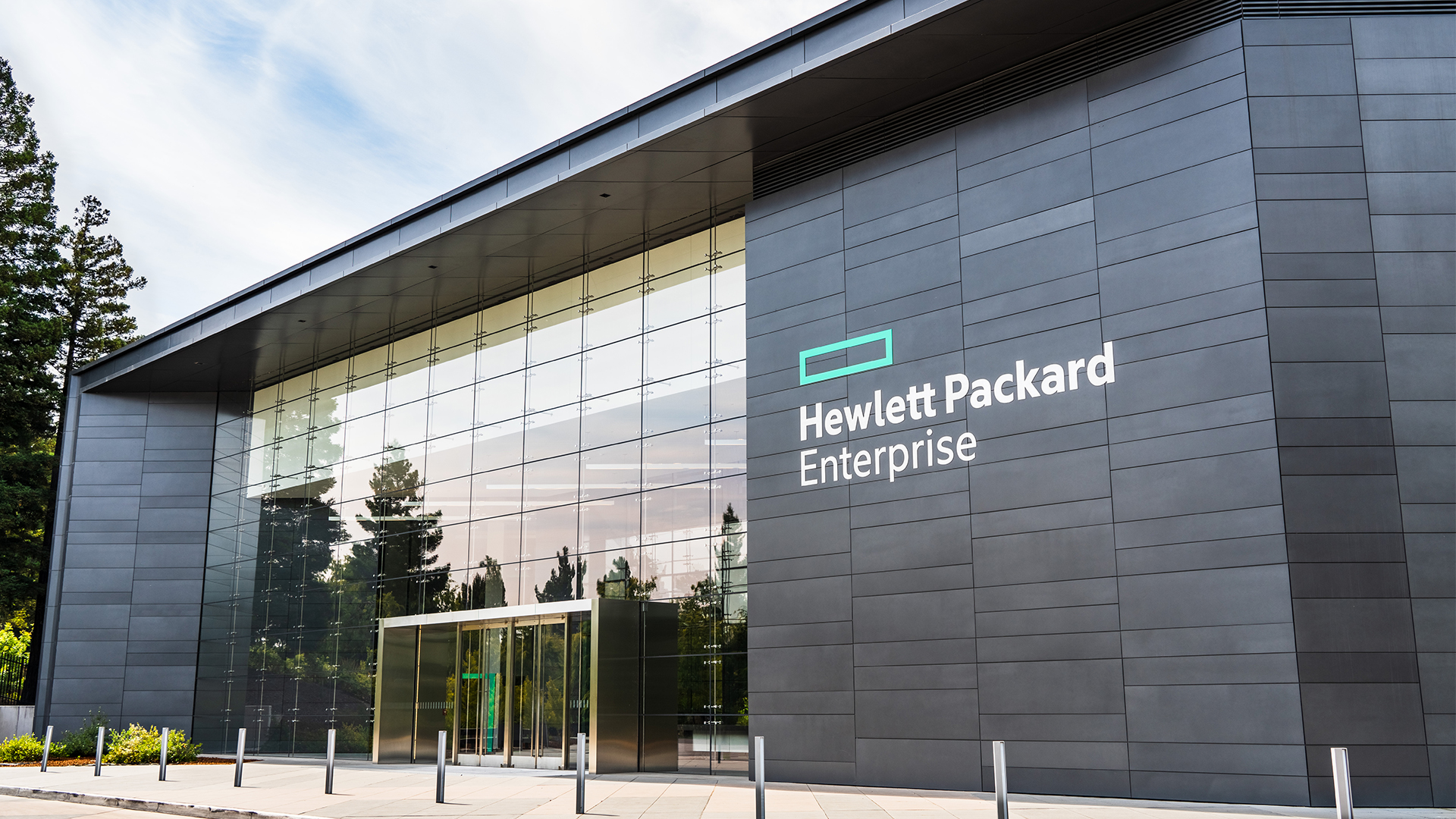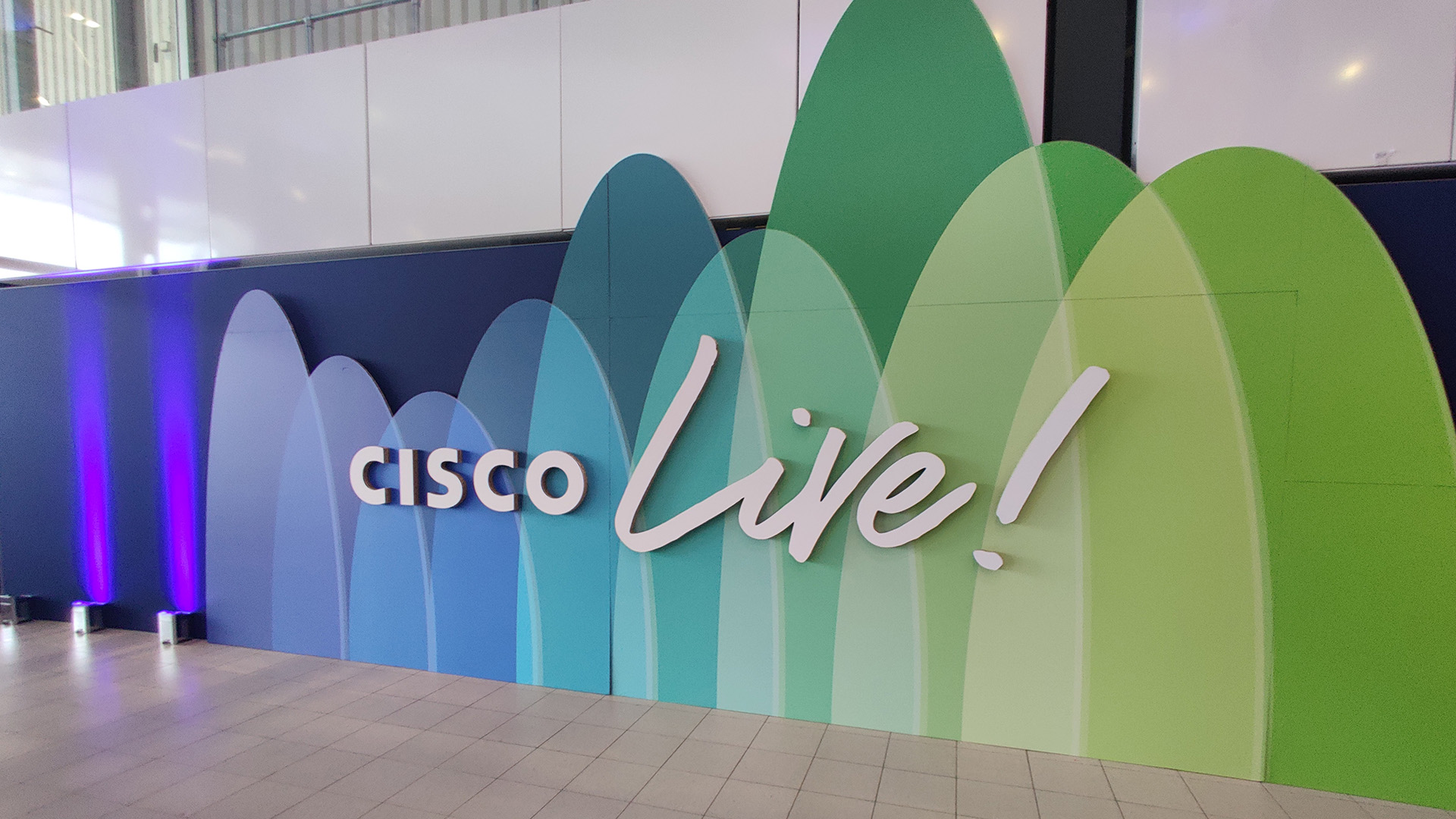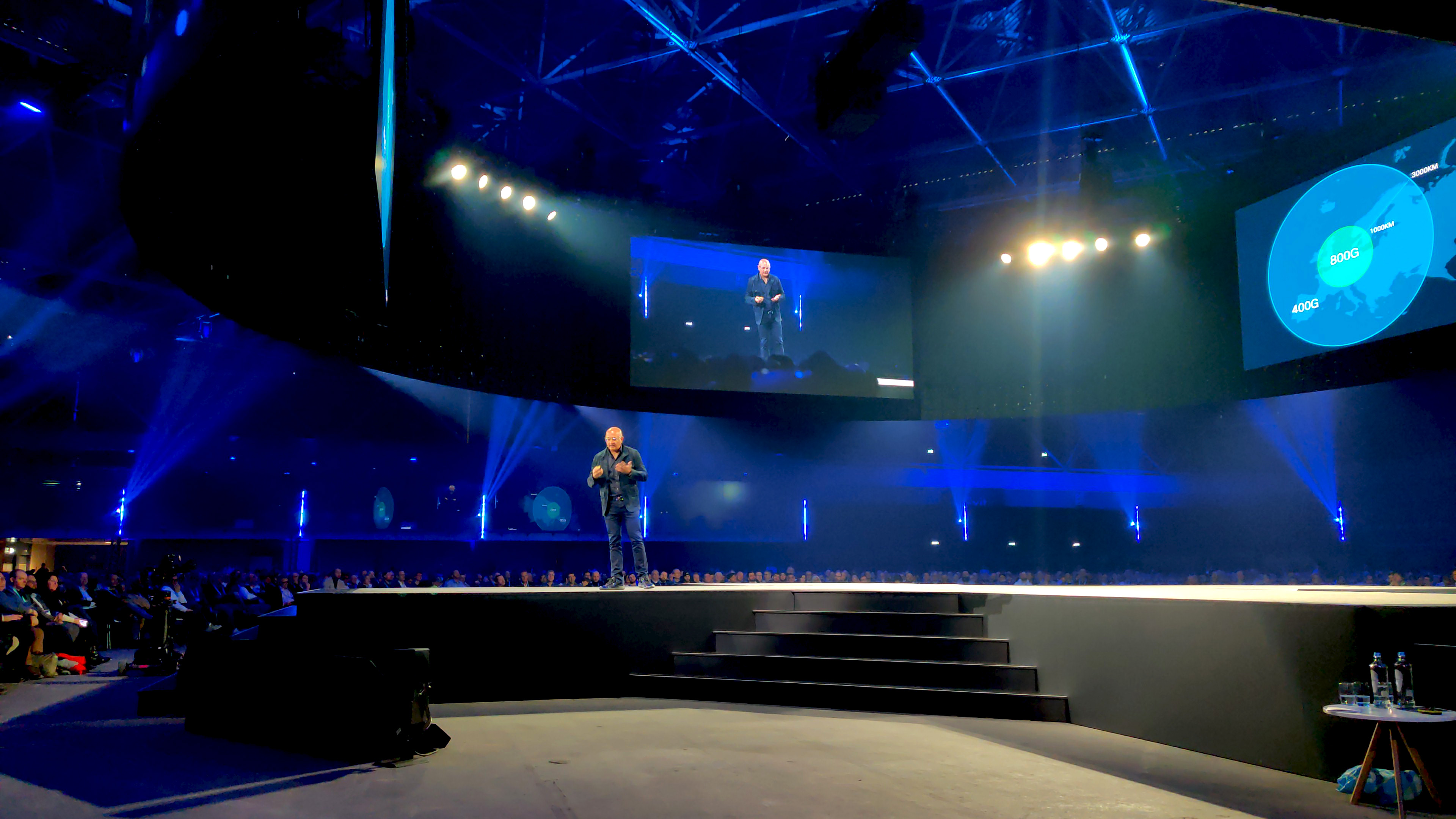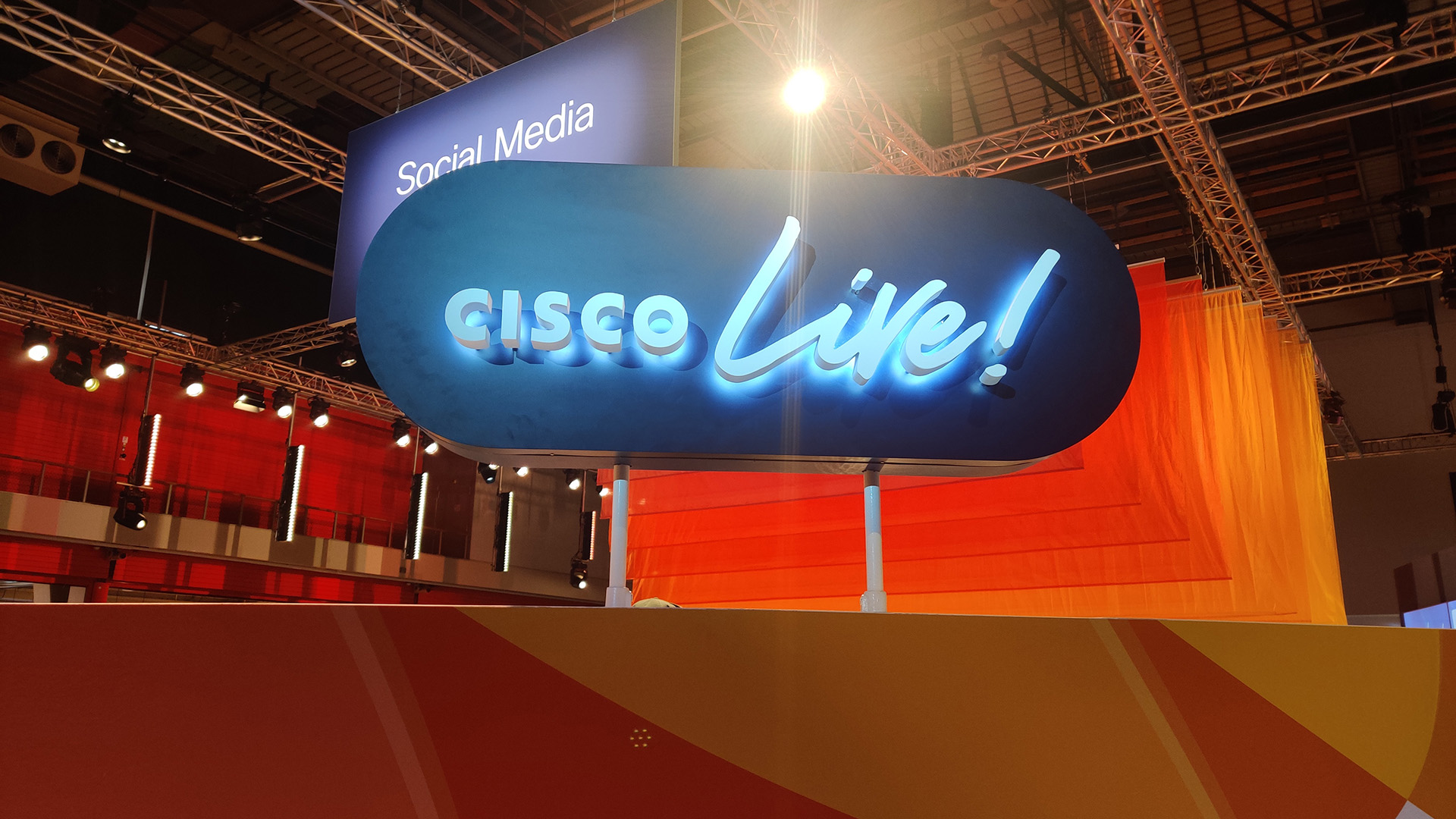Q&A: Cisco on servers, storage and strategy
We chat with Laurent Blanchard, Cisco's vice president of enterprise, to ask why IT should get excited about what the networking giant can offer.


We can make video data intelligent. You can do a search on videos now, for example. So you can search for what someone said or for keywords.
Going back to cloud, how much traction have you got within service provider data centres?
We do work with the traditional service providers, like Amazon and Google.
A lot of the talk at Cisco Live has been around providing better than 'good enough' networks, rather than premium ones like Cisco claims to offer. But a lot of IT managers are happy with good enough as long as it has got a low barrier of entry. Do you worry some of the cheaper providers are going to steal business away from you in the current climate?
I think the trend from the IT and CIO/IT manager side, the big one, is the move from Capex to Opex. When you look at the cost of running an operation, most of the cost is not the initial investment, it's running it.
You can go and buy a very cheap server with no security built into it, but it is going to cost you a lot of money after that.
But then you have the business angle which is continuously pushing you to get a new environment, new devices to be supported. Actually, what you're looking at is elasticity and agility at a cost which is the lowest cost.
Get the ITPro daily newsletter
Sign up today and you will receive a free copy of our Future Focus 2025 report - the leading guidance on AI, cybersecurity and other IT challenges as per 700+ senior executives
We're clearly looking at the total cost of ownership (TCO), the cost of running the operation, as well as doing no compromise on security.
You can go and buy a very cheap server with no security built into it, but it is going to cost you a lot of money after that. Security is an environment where we feel there is no compromise and today it is one of the top asks of the CIO.
Can you prove that your TCO is lower than others?
We have very large companies who've done this. Let's take banking firm ING, they moved into a solution using UCS for virtualisation and they've been consolidating many servers they have IBM, HP, Dell servers. They have been consolidating using Cisco technology UCS with a VMware hypervisor and EMC. The cost of what they are running is lower than what they had before.
I don't like overall studies covering this because each environment is different, but I can tell you we would not have gotten to 10,000 customers if the competition was cheaper.
I've been at HP where I sold x86 and you would sell it, sell it, sell it. But if you don't have any differentiators, you are under an additional pressure margin. This is not where we want to play.
Tom Brewster is currently an associate editor at Forbes and an award-winning journalist who covers cyber security, surveillance, and privacy. Starting his career at ITPro as a staff writer and working up to a senior staff writer role, Tom has been covering the tech industry for more than ten years and is considered one of the leading journalists in his specialism.
He is a proud alum of the University of Sheffield where he secured an undergraduate degree in English Literature before undertaking a certification from General Assembly in web development.
-
 Cleo attack victim list grows as Hertz confirms customer data stolen
Cleo attack victim list grows as Hertz confirms customer data stolenNews Hertz has confirmed it suffered a data breach as a result of the Cleo zero-day vulnerability in late 2024, with the car rental giant warning that customer data was stolen.
By Ross Kelly
-
 Lateral moves in tech: Why leaders should support employee mobility
Lateral moves in tech: Why leaders should support employee mobilityIn-depth Encouraging staff to switch roles can have long-term benefits for skills in the tech sector
By Keri Allan
-
 HPE eyes enterprise data sovereignty gains with Aruba Networking Central expansion
HPE eyes enterprise data sovereignty gains with Aruba Networking Central expansionNews HPE has announced a sweeping expansion of its Aruba Networking Central platform, offering users a raft of new features focused on driving security and data sovereignty.
By Ross Kelly
-
 Extreme Networks targets simplicity with Platform ONE for MSPs
Extreme Networks targets simplicity with Platform ONE for MSPsNews Extreme Networks has announced a new program for MSPs which includes access to its Extreme Platform ONE to address cost challenges.
By Daniel Todd
-
 Cisco polishes its platform but the network is still king
Cisco polishes its platform but the network is still kingAnalysis Cisco still believes its integrated platform will drive new value for customers, but its historic strength in networking is where it will have the edge in the AI era
By Solomon Klappholz
-
 ‘Divorced from reality’: HPE slams DOJ over bid to block Juniper deal, claims move will benefit Cisco
‘Divorced from reality’: HPE slams DOJ over bid to block Juniper deal, claims move will benefit CiscoNews HPE has criticized the US Department of Justice's attempt to block its acquisition of Juniper Networks, claiming it will benefit competitors such as Cisco.
By Nicole Kobie
-
 Cisco wants to capitalize on the ‘DeepSeek effect’
Cisco wants to capitalize on the ‘DeepSeek effect’News DeepSeek has had a seismic impact, and Cisco thinks it has strengths to help businesses transition to AI-native infrastructure
By Solomon Klappholz
-
 Cisco Live EMEA 2025: All the news and updates as they happen
Cisco Live EMEA 2025: All the news and updates as they happenLive Blog Stay up to date with the latest information live from Amsterdam at Cisco’s annual EMEA conference
By Solomon Klappholz
-
 Zyxel Networks targets cloud networking growth with new partner program
Zyxel Networks targets cloud networking growth with new partner programNews The revamped initiative places an increased focus on the firm’s Nebula cloud platform
By Daniel Todd
-
 Closing the connectivity gap
Closing the connectivity gapWhitepaper Five reasons full fibre broadband is a game changer for your business
By ITPro